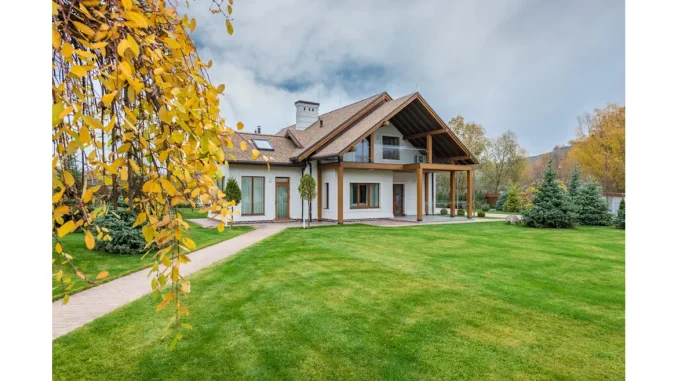
In the contemporary world, where environmental awareness and ethical consumerism have gained considerable traction, the hospitality industry is experiencing a profound transformation. Far from being a mere trend, the pursuit of sustainability has become a fundamental shift in consumer behaviour, compelling hotels and restaurants to reassess their operational strategies. Modern consumers are increasingly making purchasing decisions based on eco-conscious values, thereby reshaping the hospitality landscape where success is now measured by both financial performance and environmental stewardship.
The journey towards sustainability in hospitality begins with the integration of eco-friendly practices into every facet of operations, from initial design to daily management. One of the primary strategies is to merge aesthetics with functionality, creating spaces that are visually appealing while being environmentally responsible. Jane Smith, a sustainability consultant, underscores the significance of this balance: “Consumers appreciate products that are both efficient and stylish.” A pertinent example is the installation of electric awnings, which provide elegant outdoor areas for relaxation or dining while reducing the need for electrical cooling through solar shading. This not only enhances the guest experience but also underscores the brand’s commitment to sustainability.
The utilisation of smart devices in hotel rooms is another practical solution that combines convenience with energy efficiency. Smart thermostats and occupancy sensors adjust heating and cooling based on room occupancy, significantly reducing electricity consumption. “When guests observe tangible changes like smart thermostats and occupancy sensors, it becomes an effective demonstration of your sustainability objectives,” adds Smith. These innovations illustrate the pivotal role technology can play in advancing sustainability within the hospitality sector.
Energy efficiency is a burgeoning trend, particularly among luxury hotels that are increasingly adopting renewable energy alternatives such as solar and wind power. LED lighting, intelligent thermostats, and occupancy sensors are becoming staples in modern luxury establishments, optimising energy usage and minimising waste. Green buildings, which consume on average 26% less energy and 30% less indoor water, present a financially sound option for brands aiming to operate more sustainably. The Lapa Rios Eco Lodge in Costa Rica exemplifies this approach, utilising solar panels and converting pig waste into biogas for its operations. “Sustainability is our hallmark and a key unique selling proposition for attracting customers,” says the lodge’s management.
Another innovative approach that hospitality brands are adopting is biophilic design. This architectural style enhances the human connection to nature by incorporating natural elements such as light, fresh air, and air-purifying flora into the built environment. Green roofs, for example, conserve water, prevent overheating, and support ecosystems by absorbing pollution. Architect John Doe notes, “Biophilic design is the ideal method to blend style and décor with sustainability. It fosters wellbeing and productivity, making it a win-win for both guests and the environment.”
Collaborating with other eco-friendly brands further bolsters a hospitality business’s sustainability message. By forming partnerships with like-minded companies, brands can highlight their commitment to environmental responsibility. Co-branded initiatives provide a platform to showcase joint commitments to sustainability, whether through exclusive packages or experiences. Marketing expert Emily Johnson points out, “Identifying complementary products or services offered by eco-friendly brands allows hospitality establishments to enhance their sustainability profile while providing added value to guests. It also enables cross-promotional opportunities, reaching new audiences and amplifying the reach of their eco-friendly message.”
The hospitality industry’s pivot towards sustainability reflects broader societal changes. As consumers become more eco-conscious, they demand transparency and authenticity from the brands they support. This shift is not merely a trend but a fundamental change in consumer behaviour, reshaping how hotels and restaurants operate. From design and construction to daily operations and marketing strategies, hospitality brands that fail to adapt may find themselves left behind as consumers increasingly vote with their wallets for a greener future.
Additionally, the integration of sustainability into hospitality is not solely about reducing environmental impact; it is also about enhancing the guest experience. Eco-friendly initiatives like smart devices, biophilic design, and partnerships with other sustainable brands create a unique and immersive experience for guests. This not only attracts eco-conscious consumers but also fosters loyalty and positive word-of-mouth, further bolstering the brand’s reputation and success.
Looking ahead, the trend towards sustainability in hospitality is likely to continue and evolve. Advances in technology will play a crucial role, with innovations like AI-powered energy management systems and smart building materials becoming more prevalent. Tech analyst Sarah Green predicts, “The future of sustainable hospitality lies in leveraging technology to create more efficient and eco-friendly operations.” Furthermore, regulatory pressures and consumer demand will drive the adoption of more stringent sustainability standards. Certifications such as BREEAM and LEED will become essential for hotels and restaurants aiming to attract eco-conscious guests. Hospitality consultant Mark Brown states, “Sustainability will become a baseline expectation rather than a differentiator.”
The hospitality industry’s embrace of sustainability marks a pivotal moment that transcends mere energy-efficient measures and eco-friendly policies. It represents a comprehensive reassessment of how hotels and restaurants operate, with sustainability becoming the cornerstone of both business strategies and guest interactions. As the industry continues to innovate and evolve, those who prioritise sustainability will not only meet but exceed the expectations of the modern eco-conscious consumer. The green revolution in hospitality is here to stay, promising a future where aesthetics and sustainability go hand in hand.


Be the first to comment